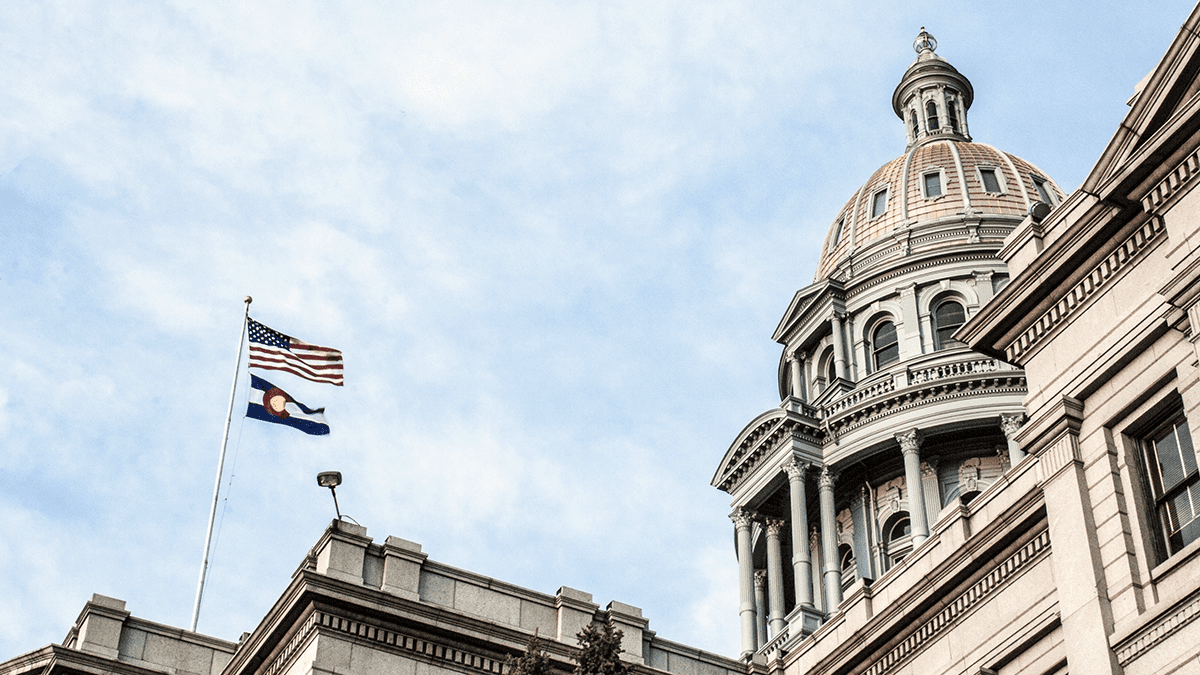Colorado health advocates presented to the Joint Budget Committee on glitch-plagued Public Health Emergency Unwind.
Recent articles
2024 Legislative session: addressing economic challenges at the individual and state level
Addressing economic challenges at the individual and state level after the 2024 Colorado legislative session.
CCLP’s 2024 legislative wrap-up, part 2
CCLP's 2024 legislative wrap-up focused on expanding access to justice, removing administrative burden, supporting progressive tax and wage policies, preserving affordable communities, and reducing health care costs. Part 2/2.
CCLP’s 2024 legislative wrap-up, part 1
CCLP's 2024 legislative wrap-up focused on expanding access to justice, removing administrative burden, supporting progressive tax and wage policies, preserving affordable communities, and reducing health care costs.
2021 state legislation updates for March 29

Colorado’s 2021 legislative session is currently underway. Throughout the legislative session, CCLP compiles a list of all bills concerning economic opportunity and poverty reduction. This list includes bill sponsors, assigned committees, and a list of partner organizations that have confirmed their support for—or opposition to—each bill. This list updates throughout the session. The latest version may always be found in the sidebar of our Legislative Priorities page.
Read on for key takeaways, or download the March 29 Update here.
State budget
Last year the legislature cut $3.3 billion from the state budget, with careful, but dramatic cuts, from education, affordable housing, social programs, and savings. Colorado also budgeted for dramatic case and cost surges in Medicaid, which did not materialize. Tax revenues were greater than originally feared given the level of job loss. Income for many did not fall, as remote work began. Federal aid, the CARES Act, and the American Recovery Act have prevented the economy and state budget from collapsing.
Among CCLP’s budget priorities are restoring funding for SSI/SSDI Application Assistance Program, funding for rental assistance and eviction prevention, affordable housing, SNAP employment and training, digital inclusion, childcare, and education and training for those facing challenges in the job market such as adults without a high school diploma.
We are also examining the invisible budget. Like a budget, Colorado’s slate of tax credits is also a moral decision. For what reason, and for whom, does our state allow tax breaks? Given our flat rate income tax and reliance on sales tax, Coloradans with the lowest incomes pay a higher percentage of their income in state taxes than Coloradans who make more money. Legislation to rebalance tax cuts to assist struggling families will be coming later this session.
Income/expenses
SB018 helps people get a Colorado ID by paying for the ID or underlying documents. SB199 removes some requirement for proving lawful presence prior to receiving state or local public benefits. SB153 formalizes a program to ensure those leaving prison have a current ID. SB027 pays for diaper distribution for those who can’t afford them. HB1105 would increase funding for energy assistance through a $1-2 monthly fee on utility bills. It would also allow water utilities to institute an opt-in monthly fee to help finance water bill payment assistance. HB1220 lowers the interest rate on back owed child support from 12% to 10%, adds authority to intercept life insurance for payment of back owed support and requires reporting independent contractors to Dept of Labor New Hire List to expedite child support collection.
HB1214 would automate record sealing for certain arrests that did not result in charges. It allows those with convictions to file with the court for an order of collateral relief retrospectively. For those who receive a full pardon, their records would be sealed. It allows certain drug conviction records to automatically seal after a certain period of time.
Housing
Even prior to the epidemic, about half of Colorado renters paid more than 30% of their income for rent, with about ¼ of renters paying more than half their income for rent. With job and income losses during the pandemic, more struggle to keep up with rent in our high rent market. SB173 limits late fees, adds financial penalties for illegal lockouts in lieu of eviction, and gives renters more time to come up with rent prior to actual eviction. HB1121 limits rent increases to once annually and requires 10 days to execute a writ of restitution in evictions. HB1054 creates an exception for housing programs on requirement that applicants for public benefits verify lawful presence, unless otherwise required by federal law.
Health
HB1198 requires hospitals to screen uninsured patients for their eligibility for the hospital discount program and for public programs. It requires them to offer a payment plan prior to sending patients to collections. SB009 creates a program to provide contraceptives and counseling for a one- year period for Coloradans who are eligible for Medicaid, but for their immigration status. SB025 would seek federal approval to raise the income eligibility threshold for family planning services to 250% of FPL and enables women to get a full year supply at a time. SB175 establishes a board to review affordability of certain prescription drugs and establish upper payment limits if found to be unaffordable. HB1232 establishes a standardized health benefit plan that would be offered if current insurers do not reduce their premium costs by 20% by 2024.

